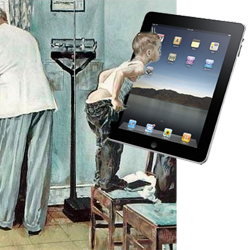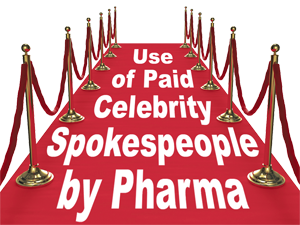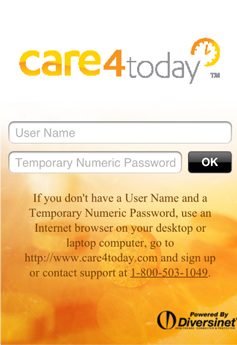Vol. 11, Issue No. 8: 11 SEPTEMBER 2012 – EXECUTIVE SUMMARY  Welcome to Volume 11, Issue No. 8 (11 September 2012) of Pharma Marketing News. Thank you for visiting. See the featured article summaries below.
Welcome to Volume 11, Issue No. 8 (11 September 2012) of Pharma Marketing News. Thank you for visiting. See the featured article summaries below.
I invite you to become a subscriber and get the next issue FREE!
John Mack, Publisher & Editor
editor@news.pharma-mkting.com
@pharmaguy The iPad in the Doctor’s Office Understanding What Physicians and Patients Desire from mHealth Applications The Apple iPad has become a “must have” for pharmaceutical sales reps because of its ease of use and “always on” feature that allows them to quickly display drug information to busy physicians.
The Apple iPad has become a “must have” for pharmaceutical sales reps because of its ease of use and “always on” feature that allows them to quickly display drug information to busy physicians.
But how are physicians and their patients using the iPad and other mobile devices within the clinical setting? That was the focus of a study done by a team consisting of healthcare professionals in an NYU Langone Medical Center department, led by Douglas Elwood, MD, MBA, who is currently Director, GMI Strategy and Innovation at Bristol-Myers Squibb.
This article reviews the latest results of that study and features an interview with Dr. Elwood on his views regarding the use of mobile devices in the clinical setting.
Topics include:
- Edited transcript of interview with Dr. Elwood
- The “Wild West” of Mobile Health Must Be Tamed to Ensure Success
- iPad Study Results
- Development and Exploration of a Multifaceted Social Platform to Improve Patient Education, Communication, and Activity
- Boomer Smartphone Survey Results
- Gaming in a New Dimension
- Bonus Content: Take One App Daily as Prescribed by Your Physician
- Bonus Content: I Give Lilly’s Glucagon Injection Branded Mobile App an A+ But Its Injection Technology a D-
Download full article (PDF) Pharma Paid Celebrity Best Practices Should Pharma Disclose Payments to Celebrity Spokespeople? Pharma marketers in the U.S. sometimes use celebrities as spokespeople for their branded drugs or for non-branded campaigns. Such celebrities include TV personalities, athletes, movie stars and others who have thousands or millions of fans, Twitter followers, etc.
Pharma marketers in the U.S. sometimes use celebrities as spokespeople for their branded drugs or for non-branded campaigns. Such celebrities include TV personalities, athletes, movie stars and others who have thousands or millions of fans, Twitter followers, etc.
Given the power of of celebrities to influence people, should pharmaceutical pharmaceutical companies disclose the details of payments made to celebrities like like they are required to do for physician payments?
Survey Results
That’s just one of the questions Pharma Marketing News asked in its “Use of Paid Celebrity Speokespeople” survey. The survey specifically asked respondents to indicate how strongly they agreed or disagreed with the following statements regarding the use celebrities as pharma-paid spokespeople.:
- Celebrities should NOT be paid to promote branded drugs.
- It’s OK to pay celebrities to participate in unbranded disease awareness campaigns.
- Celebrity spokespeople provide a good return on marketing investment (ie, increase sales) for certain Rx drugs.
- Each pharmaceutical company should be required by law to publicly disclose how much money it pays every celebrity for being a spokesperson.
Read the full article here:
http://www.news.pharma-mkting.com/pmn118-article02.htm Adherence: Do We Really Need an App for That? Do the Benefits Outweigh the Risks? Adherence, as defined in the Pharma Marketing Network Glossary, is “Percent of doses of a drug taken as prescribed for entire period of study (compliance + persistence).” In short, “sticking to the proper self-administration of treatment.” Lots of patients — even patients taking life-saving medication — are not as “adherent” as they should be, which means that the treatment does not work as advertised and drug companies lose money. This has been discussed ad nauseum (see the links to articles listed here).
Adherence, as defined in the Pharma Marketing Network Glossary, is “Percent of doses of a drug taken as prescribed for entire period of study (compliance + persistence).” In short, “sticking to the proper self-administration of treatment.” Lots of patients — even patients taking life-saving medication — are not as “adherent” as they should be, which means that the treatment does not work as advertised and drug companies lose money. This has been discussed ad nauseum (see the links to articles listed here).
There have been many attempts by the drug industry to improve medication adherence, but it has been a tough challenge. The industry, however, has not given up. The new battleground for combating non-adherence is the mobile smartphone and the smartphone app is the weapon of choice. An example is the Care4Today “secure mobile app and website” that was developed and recently released by Janssen Healthcare Innovation.
Are the benefits worth the risk?
Topics include:
- Key Features
- Stumbling Blocks
- Time to Call Suuport
- Who’s This App Designed For?
- Do the Benefits Outweigh the Risks?
Read the full article here:
http://www.news.pharma-mkting.com/pmn118-article03.htm Who Owns Your Social Media? Health Is Social, But Privately Owned and Operated “Twitter just announced a complex, confusing, and developer-alienating system that restricts their once-open, always cherished but now apparently taken for granted API,” complained Michael Spitz, SVP and Managing Director at Zemoga. “The new rules change the playing field for third party developers, establish caps on number of users, and shift guidelines to requirements across four categories of businesses that Danny Sullivan of Search Engine Land humorously characterized in Star Trek terms.”
“Twitter just announced a complex, confusing, and developer-alienating system that restricts their once-open, always cherished but now apparently taken for granted API,” complained Michael Spitz, SVP and Managing Director at Zemoga. “The new rules change the playing field for third party developers, establish caps on number of users, and shift guidelines to requirements across four categories of businesses that Danny Sullivan of Search Engine Land humorously characterized in Star Trek terms.”
Spitz characterized this as #TWITTERFAIL and he thinks the new rules “ruin the spirit of social media” and are “bad for healthcare.”
Spitz’s “rant” raises a couple of interesting issues that I discussed with him in a live Pharma Marketing Talk podcast.
Topics include:
- What’s an API? What API changes are we specifically talking about? Discuss the details.
- What will be the result of these changes with regard to the “developer community?”
- How will this be “bad” for healthcare? Is Twitter now “good” for healthcare? How so?
- Are we giving Twitter and other social media too much credit for its ability to improve healthcare? Are we just talking about moneyed interests — eg, pharma marketing — or actual health outcomes?
- Bonus Content: Fake vs. Real Pharma Twitter Followers
Read the full article here:
http://www.news.pharma-mkting.com/pmn118-article04.htm



![6 Digital Tools at the Center of Healthcare Digitalization [INFOGRAPHIC]](http://ec2-54-175-84-28.compute-1.amazonaws.com/pharma-mkting.com/wp-content/uploads/2021/04/6DigitalTools_600px-218x150.jpg)




![6 Digital Tools at the Center of Healthcare Digitalization [INFOGRAPHIC]](http://ec2-54-175-84-28.compute-1.amazonaws.com/pharma-mkting.com/wp-content/uploads/2021/04/6DigitalTools_600px-100x70.jpg)




